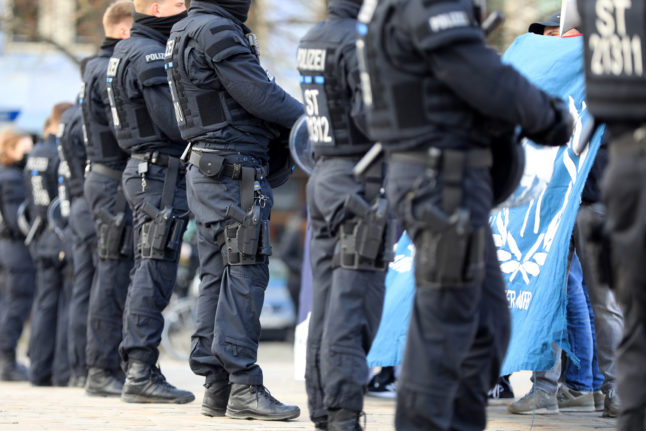The outgoing UN Special Reporter on Torture, Nils Melzer, has criticised Germany’s handling of the issue of police violence.
In his former role at the UN, Melzer was in charge of monitoring compliance with the ban on ill-treatment and torture in UN member states.
Last year, he received hundreds of reports about violent incidents involving German police officers during demonstrations against the Covid measures in Berlin.
READ ALSO: German police under fire for using tracing app to find witnesses
After watching several videos that appeared to show police brutality against the Berlin demonstrations, Melzer said that he approached the German government for comment and found their reaction “alarming.”
According to the federal government, he said, it was proportionate for police officers to, for example, push a non-aggressive demonstrator off his bicycle and throw him to the ground.
“The authorities’ perception of what is proportionate is skewed,” Melzer said.
Having requested statistics from the federal government on prosecutions of police officers, Melzer discovered that, in two years, only one officer had been prosecuted for using disproportionate force, while in several states there were no statistics at all.
“That’s not a sign of good behaviour, it’s a sign of system failure,” Melzer said. “The authorities don’t even see how blind they are.”
READ ALSO: Transphobic attacks in Germany likely to be under-recorded
He also pointed out the disparity between the punishment of demonstrators and police; while many demonstrators had been tried in summary proceedings, most cases against police officers were dropped or dragged out “until no one is looking anymore.”
He concluded that “police surveillance doesn’t work in Germany” and warned that arrogance “destroys citizens’ trust in the police.”
Melzer sent his final assessment to the German government on March 28th and it is expected to be published in full by the UN Office for Human Rights in June.



 Please whitelist us to continue reading.
Please whitelist us to continue reading.
Member comments